Wyeth
"The Sovereign Kingdom of Wyeth"
The lands of the West are broken into fiefdoms, most of which serve the sovereign Kingdom of Wyeth, the seat of which sits on the western seaboard of Hariel Majour (just south of Angleport).
The high throne of Wyeth resides within Aranost Keep. The castle stands behind a one-hundred foot, circular wall of stone (reinforced with steel), just beyond the outer periphery of Angleport (adjacent to the King's Garrison), in the small, royal city of Markhan (named for the first King of Wyeth).
Most of the court and royal advisers to the king live close to the heart of Angleport, in the noble quarter (along with the wealthiest nobles not in direct service to the crown), only venturing to their various native homelands when court is not in session. The King's closest advisors reside in the "Palace of Steel" (The Aranost) in Markhan. The palace is not, in fact, made of steel, but does have reinforced areas of exposed metal, just like the wall defending it.
Technically, Markhan is the capital of Wyeth, however most people just consider Angleport the true seat of Wyeth. This is partially due to the city's massive size and its overall dominance in the region.
Though not officially an "empire," the expansionist tendencies of many kings of Wyeth tend to skew it this way. Though ruled by a "divinely chosen" king, much of the actual governing is conducted by a council of Magisters and regional lords (Dukes, Barons, and similar), who operate not unlike a Senate.
HUMBLE BEGINNINGS
Wyeth began as a much smaller, independent town called Duskal, ruled by a "Warden" or "House Lord," typically "elected" through battle prowess. It was a rotating post culled from the five kingdoms of the region, as Duskal was the (largest) central "hub" that connected the kingdoms into one tiny confederacy of sorts. Duskal was also the informal name of the "nation" formed of the collective kingdoms. At the time, defending Duskal's (and the nation's) borders from violent incursions was the primary concern of the local populace. And it was the only settlement within the five kingdoms large enough to house a significant army. Though elected by an informal council of elders, the warden's rule had term limits. This functioned to limit a degree of autocratic control from the governing forces, at least in theory. One of the tenets of rule was that the position must rotate to another kingdom within the five every term, so no single lord could gain too much power within the collective nation. At this point it should be noted that it is uncertain as to exactly how long Duskal stood as a township, as records kept by its lore-keepers are spotty at best. The last Duskal Warden, Sabern Wyeth (of the growing "kingdom" of Wyeth), was also head of the most powerful order of warriors within the five kingdoms. These warriors, known as "The Knights of the Spear," were feared throughout the land, and almost single-handedly cemented Wyeth's reputation of power amongst the other settlements of the region. The knights led Duskal in the expansion of its borders, and the town eventually absorbed many outlying settlements (in most cases, peacefully). It was when Sabern was commanded to stand down from his post that everything changed. Sabern was very popular with the people, and not just those of Duskal and Wyeth. He therefore made the fateful decision to press his advantage, refusing the council of elders and claiming "kingship" of not only Duskal, but of the entire five kingdoms. As none could stand against Sabern's army, and with Sabern promising the rulers of the five kingdoms retention of their lands and titles, the lord of Duskal got everything he wanted, pretty much unopposed. Save for one amongst the five... The kingdom of Nerithal stood firm against Sabern Wyeth, leading (much later) to the "War for the West." At the time, Nerithal resisted as best it could, with small skirmishes against the newly formed crown, but eventually it bent the knee. Thus the kingdom of Wyeth was formed in (approximately) 1562 D.E., centered on the lands of Duskal (which was promptly renamed). Sabern was the first king of Wyeth, and ruled for the remainder of his life. His later achievements include the construction of the (original) Aranost. The "Iron Keep" served as the seat of power in the west for several centuries. Sabern's son, Markhan Wyeth, benefitted from a long rule, and had the city of his namesake (Markhan) built as the prime garrison for his dedicated knights and army.THE WAR FOR THE WEST
The first major threat to the nascent throne of Wyeth came, not unexpectedly, from Nerithal in approximately 1,200 D.E. when the (then) current king, Markhan Wyeth III went head-to-head with the young Ivo Nerithal, who'd secretly mustered an impressive army of dissidents within Markhan's own kingdom. What was at first expected to be but a small skirmish ended up blossoming into full-scale war. A war that lasted nearly 100 years. A defining moment in the conflict was the unexpected and incredible sacking of the capital and the destruction of the "impenetrable" fortress of Aranost. In what seemed to be an "all is lost" moment, the king retreated to his namesake garrison city of Markhan (which later became the new capital city), where his forces regrouped and staged a desperate counter-strike. So it was, on the fields of Lygold (in the modern day Freemantle) King Wyeth personally baited the overconfident Nerithal "usurper king." The foolish youth took the bait, not seeing the trap he was falling into. The battle that ensued was so bloody that Lygold was since renamed "The Sodden Fields" or "The Fields of Red." Through superior tactics, Wyeth fractured and routed Nerithal's lines. He then marched on Nerithal's capital, leveling it to the ground. The usurper sued for peace shortly after. As a condition of their surrender, the nation of Nerithal was dissolved, however the crown allowed the scattered holdings of Nerithal (those who chafed at the notion of outside rule) to become "self-ruled," thus forming what we know today as The Freemantle. Future kings have oft come to regret that decision, but it has kept infighting and attempts on the crown to a minimum. It seems giving the fractured states their autonomy was exactly what the realm needed for lasting peace. At least for a time...THE REFORMATION & THE 1st USURPER WAR
During the dark times following the Sundering, the first major revolt tore through the kingdom. The nation lands were divided by opportunistic local lords, and for several centuries the divine line of Wyeth fell from absolute power. Previous to this, the powerful priests of the Faith Zenithal (see article) pulled nearly as much political weight in the kingdom as the crown itself. This held for many centuries until the Sundering brought about the silence of the gods. Seizing the opportunity, the "heretic" king Jorson Wyeth separated the faith from the crown's affairs with The Reformation. The Zenithal was forced out of Markhan and relocated to Jomor, where it was expected to diminish. Jorson changed the political map for all time, and with it, even the calendar of Gothenya... Thus, the Age of Destiny (defined by the will of the Gods) was usurped by the Age of Will (defined by the will of mortals), and the people fought to toss off the yoke of divine rule. Ironically, with "Divine Right" now in question, the Wyeth blood-claim to the throne (unbroken since it's founding 2,000 years past) was under threat. It was challenged by various usurper kings, who fought the crown under the (often false) banner of "the will of the people." Conflict stirred along a knife's edge for hundreds of years, with small skirmishes breaking out every few years. It seemed for a time, that the crown may be able to hold fast against its many challenges. However, roughly 200 years ago, the open conflicts became far more brazen. Most significantly, The upstart Barony of Rocha massed the citizen soldiers of The Freemantle (a loose confederation of independent orbital city-states and farm towns) against the last original King of Wyeth, Neral Wyeth "The Green." One major impetus for the conflict was the fact that Neral never took a queen, and as such, never sired an heir. His intent was to pass the crown to his (much younger) child brother, Kamen. The people feared rule from an undisciplined child, and even if Neral lived to a ripe long age, there was no sign that Kamen had any affinity for rule. And thus, in 1217 A.W., after a long a bloody war, Rocha and its allies successfully broke the royal line for generations to come.THE HALBION YEARS
The combined forces of the usurper installed their own, "elected" ruler, Palant Halbion (formerly ruler of Lyssia) as king of Wyeth. This was not meant to be a dynastic post. Rather, a council comprised of lords from all Wyeth vassal states would elect each successive king. But this was not to be. For Palant, at the end of his long rule, went ahead and installed his son, Prince Edric Halbion, as king, much to the chagrin of the council. Unfortunately for the collected lords, Palant was popular enough to get his way, and essentially a new dynasty was born, with a Halbion on the throne for the next hundred years. The last of the Halbion kings was Palant II in 1321 A.W.THE RESTORATION
Fears of the maligned Lentokki God Kings to the east paved the way for the Restoration of the Crown. After years of largely ineffective "democratic" rule (predominantly corrupted, due in large part to the interests of Rocha), Jothan Wyeth "The Valid" (a moniker meant as a perjorative by his detractors, yet embraced by Jothan as a badge of honor) arrived on the scene to retake the throne for the original bloodline. A beloved war hero, Jothan hailed from those ("The Spear") Wyeths who defended Narfell against the Goblin Horde, at the end of the Sundering. Though his ascent was largely bloodless (due to his shock and awe battle tactics and the relative inexperience of the farming states he usurped), many questioned it as an exploitation of the peoples' deeply ingrained fear of the Lentokki. When the newly reformed Senate couldn't come to any agreement or legislation to deal with the remaining lords of the Freemantle, still in open revolt, Jothan disbanded them in what some refer to as a coup. Overnight, Jothan transformed the benevolent nation state into an empire in all but name, expanding its borders deeper into the Freemantle. Jothan took, mostly without violence, many of the hold-out states within the Freemantle. Now, one hundred years and three "emperor" kings later, the throne is held by Clarent Wyeth, "The Young". It is also questioned (in private at least) whether Clarent rules from a position of true autocratic power, or is a puppet king, controlled by monied Southron lords. Possibly a pawn of the oft misunderstood Custodians or the Grand Hassir of Varuum himself. These of course are simply rumors, and no evidence exists to suggests they are true. It should, however, be noted that the bloodline Jothan displaced when he retook the crown now lives in exile, and is most likely plotting to reclaim what they lost. In any case, the local lords under Wyeth's domain do not all share the joy of the Restoration. It is common knowledge that a cabal of nobles, possibly within the royal court itself, plots to unseat the king. Many of these local lords saw their wealth plummet quite significantly after they could no longer directly tax their vassals (at least, not without giving a portion to the crown). When you search for the cause of any armed conflict, look to the money. One of the more controversial acts committed by Clarent Wyeth was to change the crest of Wyeth. Something that hasn't been done since the founding of the nation nearly three thousand years past. The original crest featured two dragons, face to face, and was a fierce sight on the battlefield. As Clarent is a staunch advocate for peace, he desired the crest to reflect that. It has since been converted to the now infamous rose clenched in a mailed fist, highlighting both the beauty and strength Clarent sees within his great kingdom. He also added a secondary crest, specifically engineered for the Knights of the Spear, featuring his beloved unicorns. This seemingly small act has further alienated those hardliner vassals who already took issue with Clarent's rule.Structure
Feudal, Constitutional Monarchy, where the king is a true leader, but defers certain powers to a ruling council (not unlike a parliament).
1st King of Wyeth: Sabern Wyeth I
2nd King of Wyeth: Markhan Wyeth I
3rd King of Wyeth: Markhan Wyeth II
4th King of Wyeth: Ertold Wyeth I
5th King of Wyeth (during the War for the West): Markhan Wyeth III
King of The Reformation: Jorson Wyeth I
Last of the Original Kings of Wyeth: Neral Wyeth I
Ill Fated Successor: Kamen Wyeth I
1st Usurper King: Palant Halbion I
2nd Usurper King: Edric Halbion I
Last Usurper King: Palant Halbion II
1st King of the Restoration: Jothan Wyeth I
Current King of Wyeth: Clarent Wyeth
Public Agenda
To create order in the West, under a unified kingdom.
Assets
The kingdom of Wyeth controls the vast majority of the wealth in Hariel Majour. Currency used throughout the realm is minted in the capitol city of Markhan, with additional minting handled by the dwarves of Harnath Uul.
Wyeth also boasts the largest standing army in the west, which is supplemented by soldiers from the various houses that comprise the vassal states to the crown.
History
The lands of the largest western continent are broken into fiefdoms, most of which serve the sovereign Empire of Wyeth (Aka "The Sunset Kingdom," or "The Dusklands," for the seat of the nation lies at the westernmost coast in all Gothenya).
The seat of power in the empire, the High Throne of Wyeth, sits behind a two-hundred foot circular wall of stone and steel, dead center amid the largest city in the known world, Angleport. A city boasting an alleged population just shy of one million residents. Most of the court and advisors to the king live close to the heart of the city, only venturing to their various homelands when court is not in session.
The kingdom was not always an empire. Though ruled by a divinely chosen king, much of the actual governing was once conducted by a council of Magisters and regional lords (Dukes, Barons and the like), who operated not unlike a senate. During the dark times shortly after the Sundering, revolt tore throughout the kingdom. The nation lands were divided by opportunistic local lords, and for many years the line of Wyeth fell from absolute power.
Thus, The Age of Destiny (marked by the divine will of the Gods) was replaced by The Age of Will (marked by the fall of the Gods after The Sundering), and the people threw off the yoke of divine rule.
With Divine Right now in question, the Wyeth claim to the throne, unbroken for thousands of years, was in threat. It was challenged by various usurper kings, opportunistic local lords given to the "will of the people." The Barony of Rocha massed The Freemantle (a loose confederation of unaligned orbital states) against the last original King, Neral Wyeth "The Green," and after a long and bloody war, successfully broke the royal line of succession for many generations.
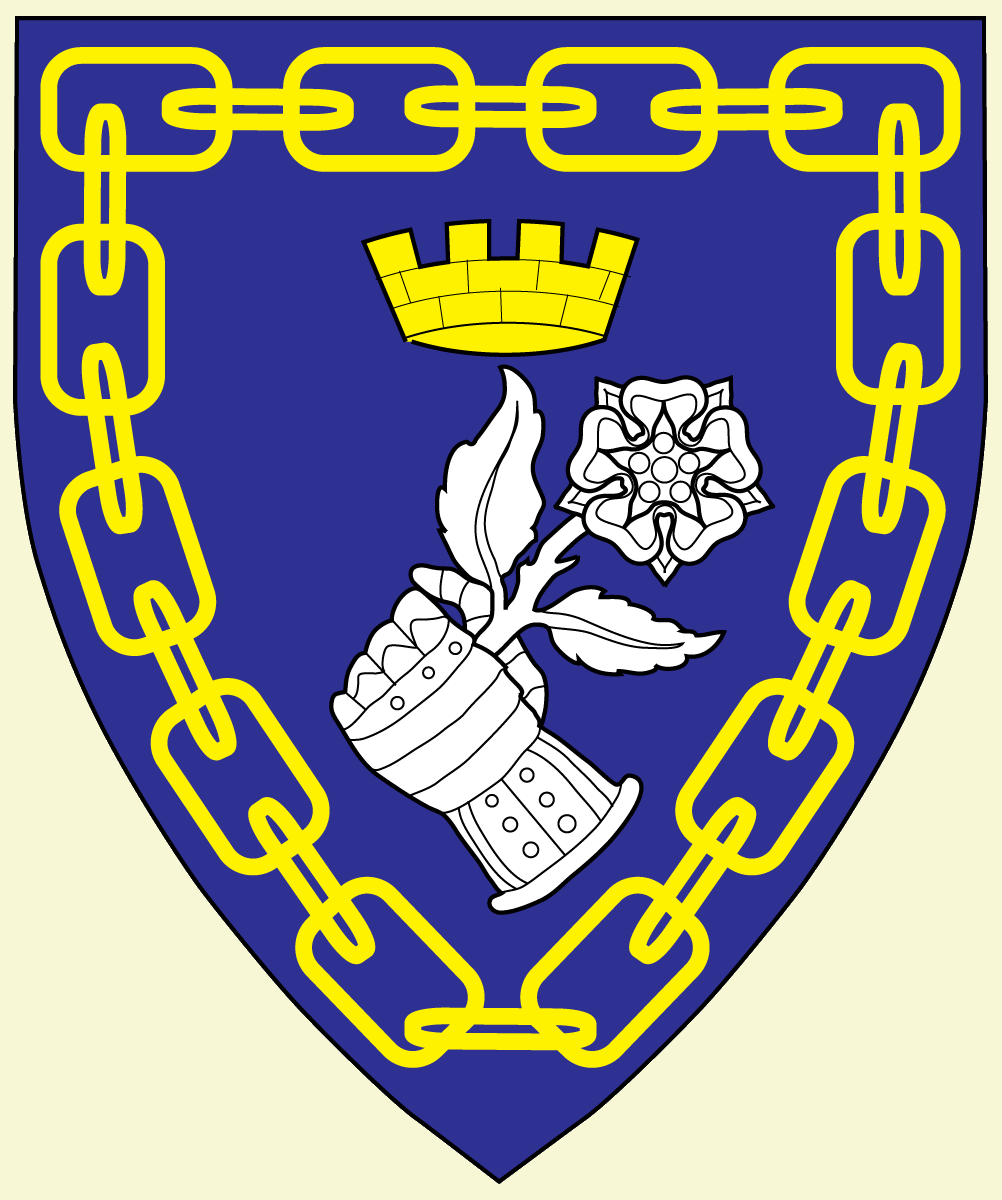
"No Land Too Vast"
Original (retired) Crest of Wyeth...
Clarent Wyeth
Founding Date
The kingdom of Wyeth was formed nearly 3,000 years ago in 1562 D.E.
Type
Geopolitical, Kingdom
Capital
Alternative Names
The Crown of the West, Empire of Wyeth, The Sunset Kingdom, The Dusklands
Training Level
Elite
Veterancy Level
Experienced
Demonym
Wyethians
Leader
Head of State
Head of Government
Government System
Monarchy, Constitutional
Power Structure
Autonomous area
Economic System
Market economy
Currency
The kingdom of Wyeth is run on the gold standard (The gold "crown"). Other coins include the silver "sword," the copper "bit," and the platinum "chivalt."
Legislative Body
The Chamber is run by the Lord Chamberlain who, along with his official duties to the royal household, also often speaks for the king in matters legislative and otherwise.
The Exchequer Royal is the chief financial officer in charge of collecting royal revenues (predominantly taxes, collected directly via bailiff or sheriff) from the provinces, towns and vassals to the crown.
Judicial Body
The Chancery is run by the Lord Chancellor, a learned knight who is responsible for the general government and judiciary of the kingdom as a whole.
Parent Organization
Subsidiary Organizations
Location
Controlled Territories
Neighboring Nations
Related Myths
Remove these ads. Join the Worldbuilders Guild

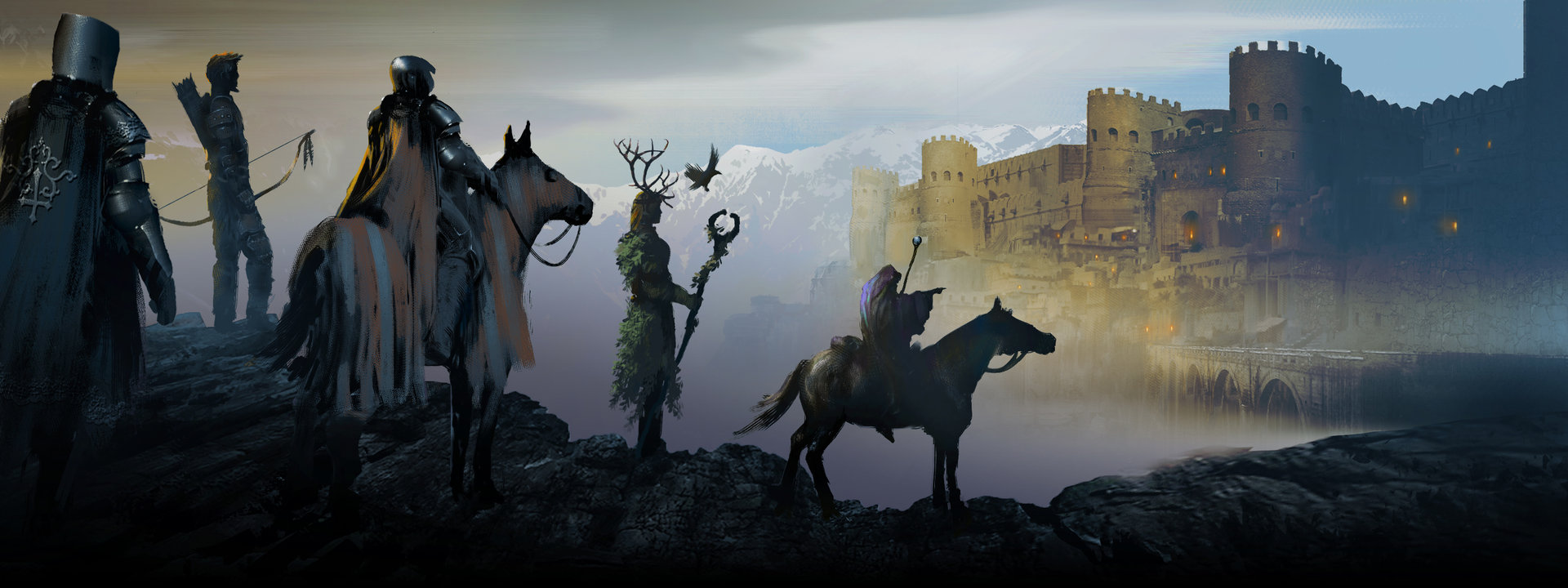
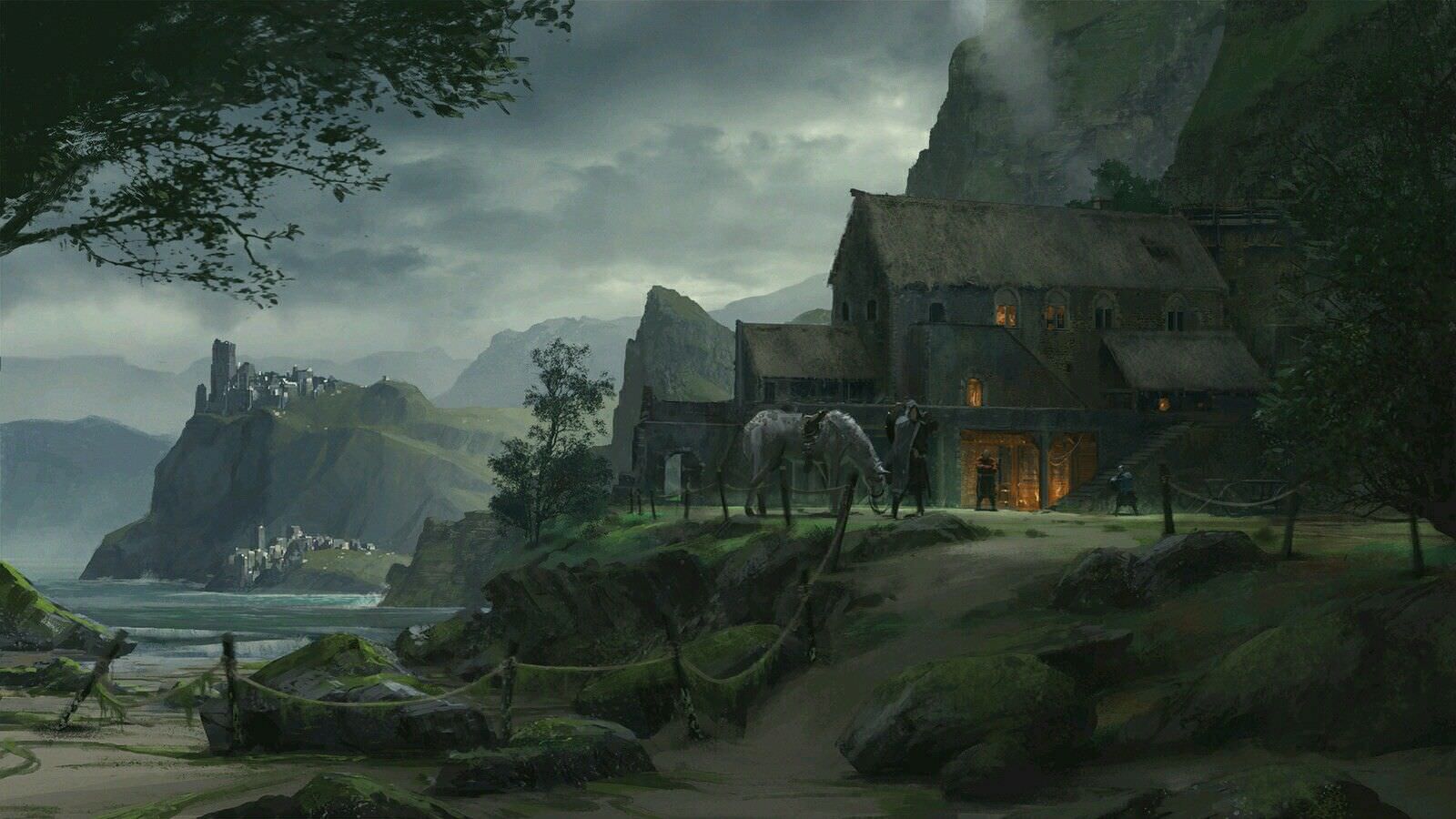
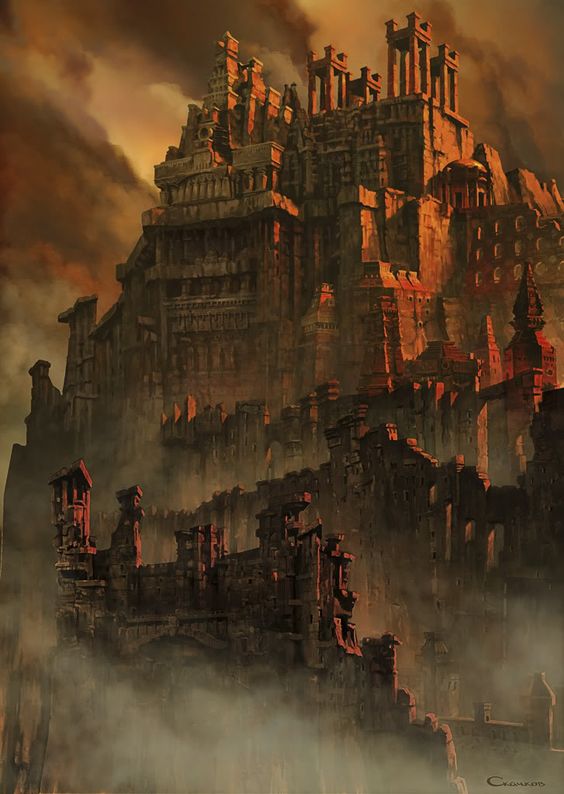
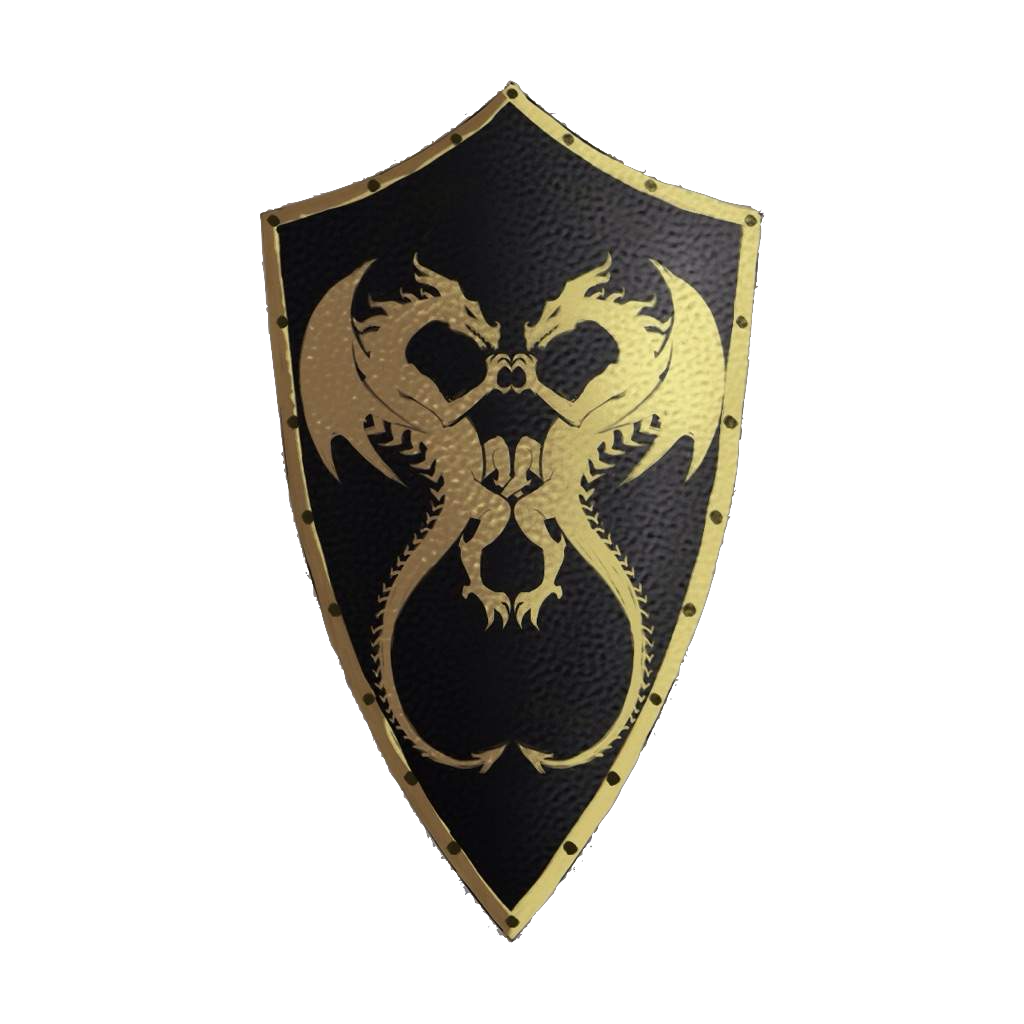
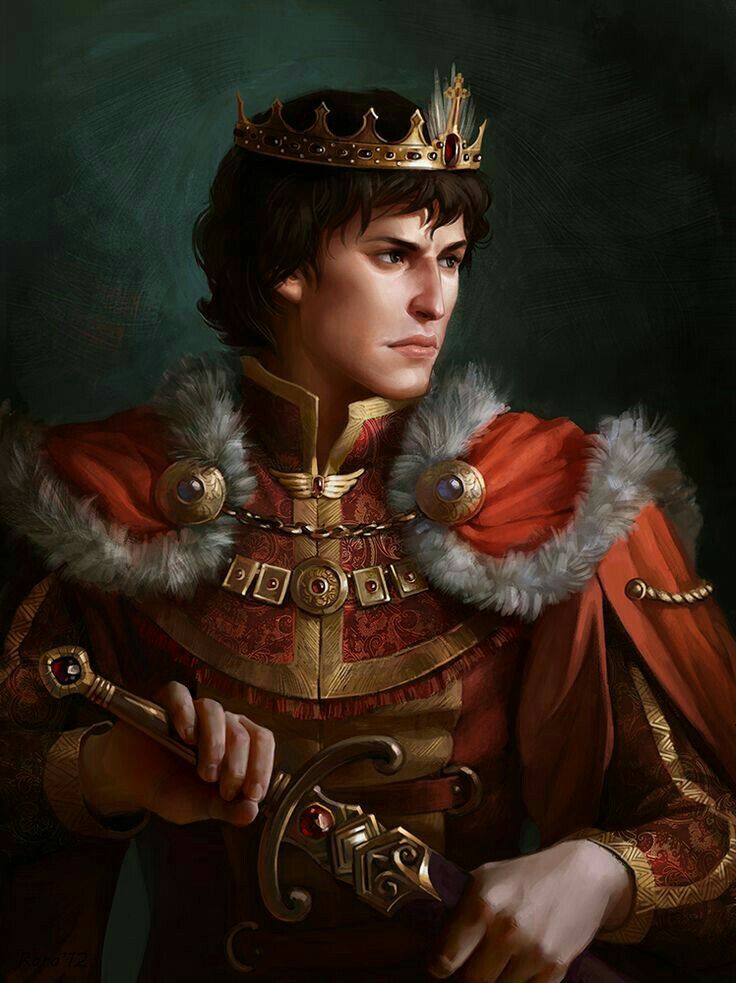
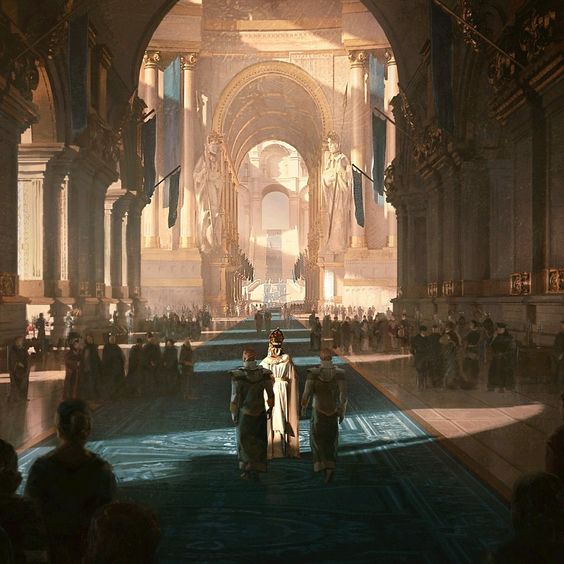
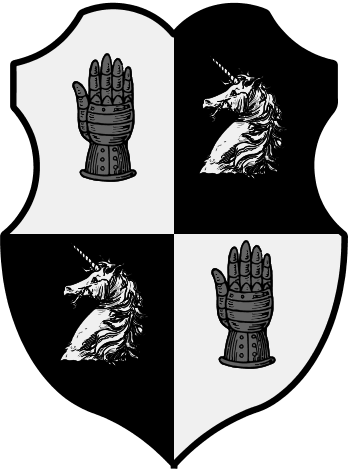
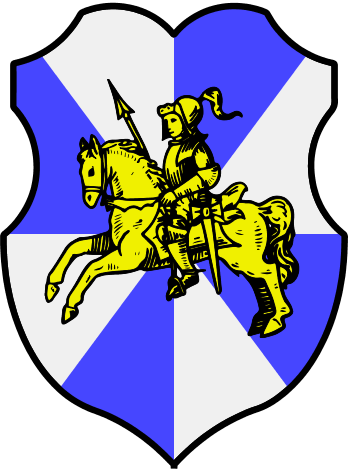
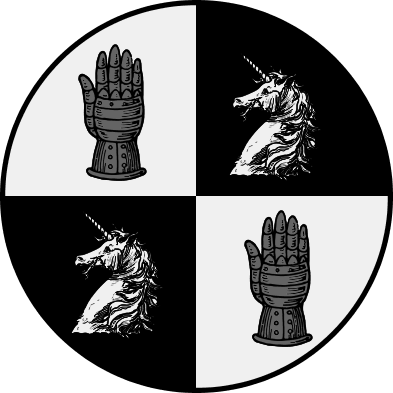
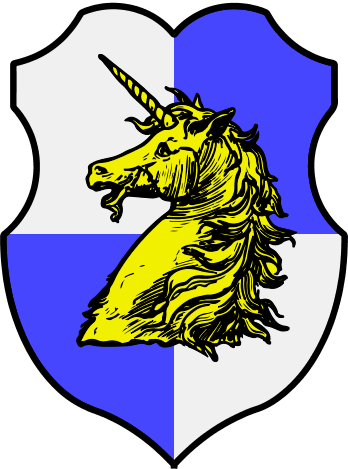
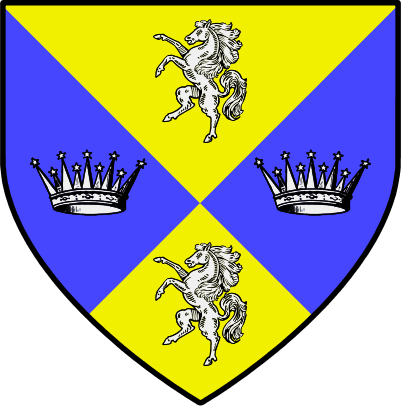
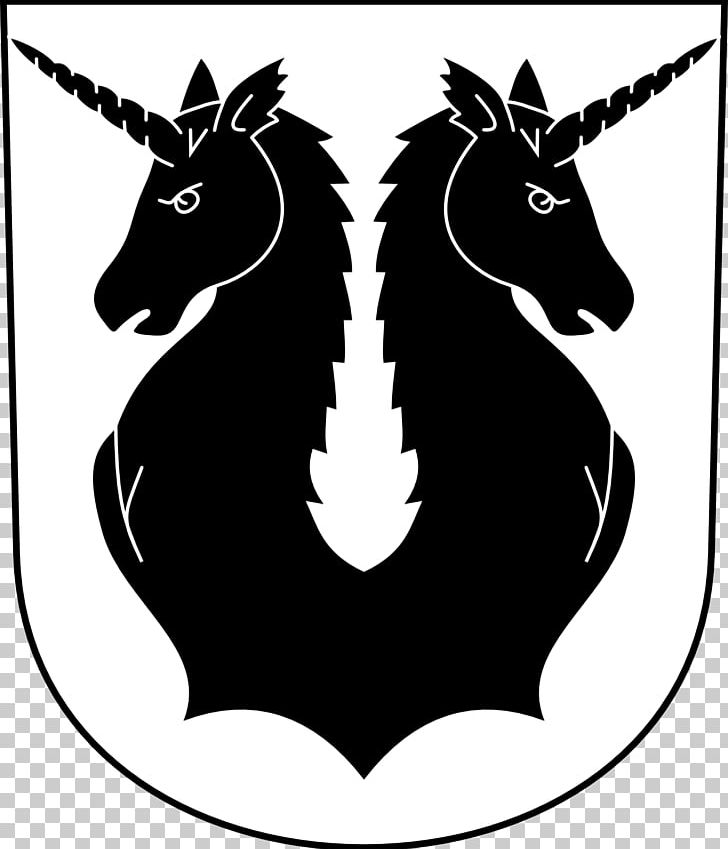

Comments